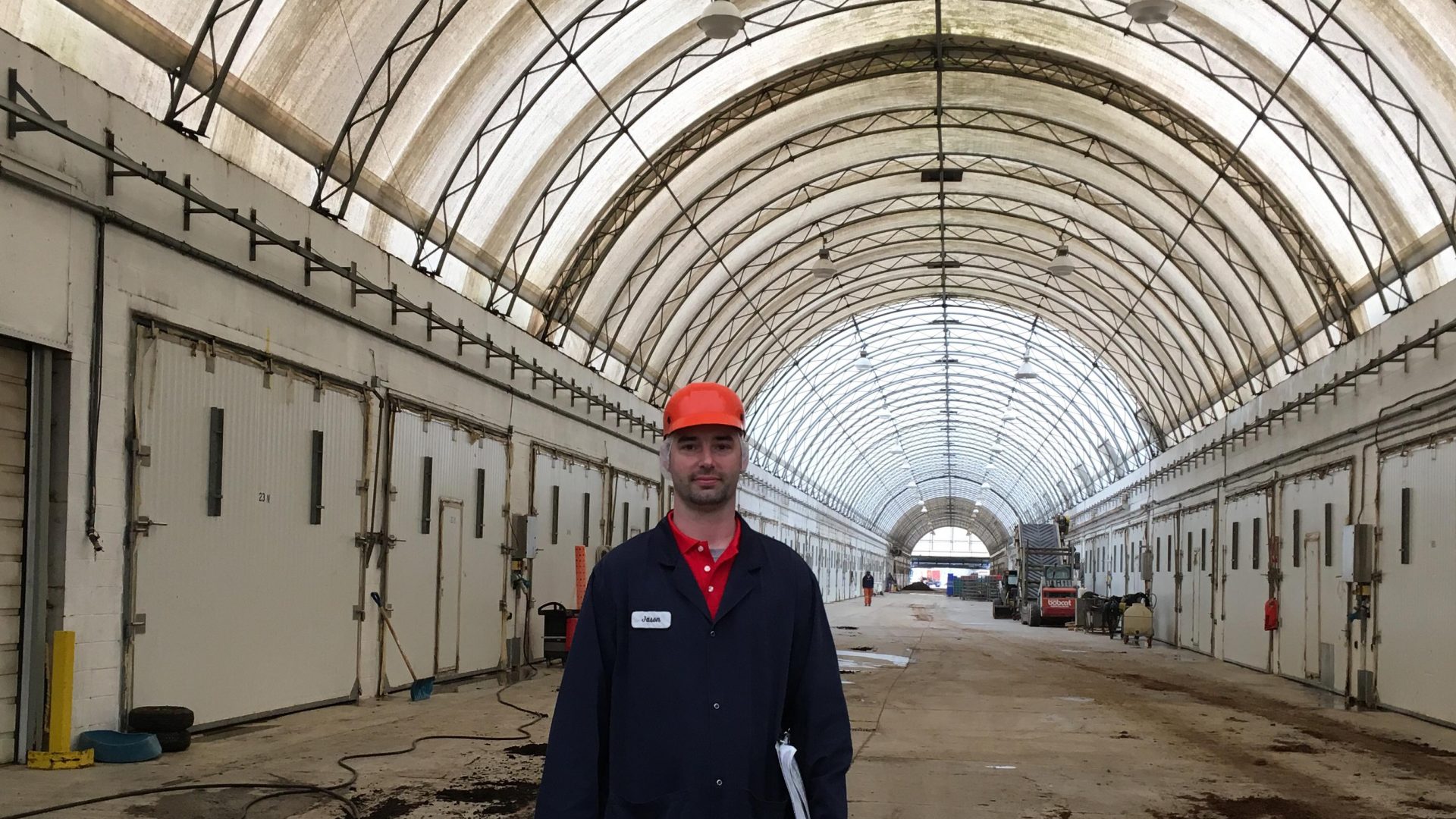Workforce Profiles look at the people behind Workforce WindsorEssex’s 76 In-Demand Jobs. Each week, we talk to a different professional for an inside look into their work.
Next time you reach for mushrooms to add in to a sauce or stir fry, take a look at the packaging. There is a good chance that those mushrooms came from Highline Mushrooms, Canada’s biggest producer of mushrooms. Windsor-Essex is home to two of their largest farms in Leamington and Kingsville.
Jason Patterson is the farm manager for the Kingsville farm where they produce white, crimini and portobello mushrooms. He brought in his resume in high school and has worked there ever since. He now supervises the composting process, all the way through the growing, to the packaging and the sales & distribution team.
A Farm Manager is one of the 76 most in-demand jobs in Windsor-Essex, falling under the category of Managers in horticulture. To learn more, take a look at the Career Profile.
We met with Jason to tour the farm and and understand the complexities of growing the delicious product:
What is a farm manager?
A farm manager takes care of pretty much everything around the farm. There are ten other managers who report to me through all the various departments.
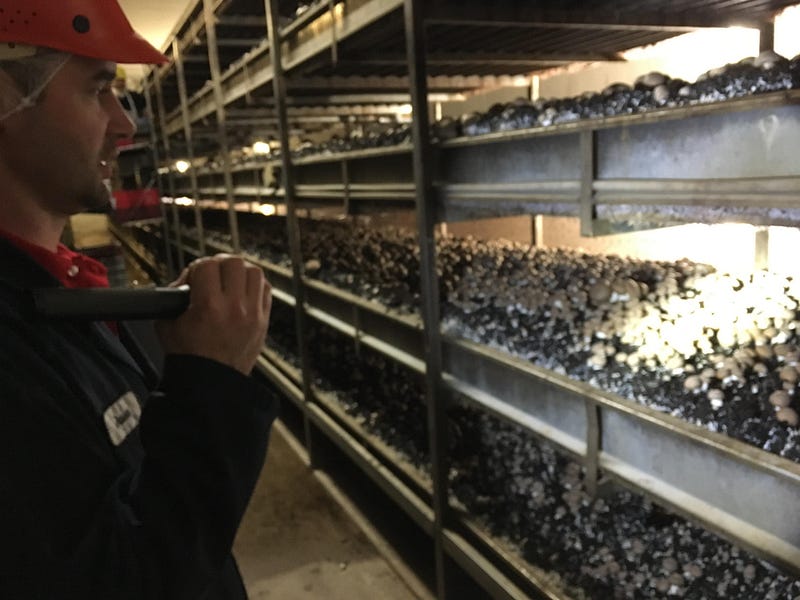
How long have you been in this job?
In this role specifically, just over a year. At the farm, I’ve been here for about eighteen years. For the majority of that, I was a mushroom grower. I grew for about twelve years before I started this role.
It’s something you have to work your way into. I started just in the packaging department and worked my way up to a supervisor. After, I was the slice-room supervisor. Eventually, there was an opening for a grower. I was scouted by the manager at the time and learned on the job. It’s been quite a road.
Has it helped having worked so many jobs at Highline Mushrooms before you became the Farm Manager?
Definitely. When I was trained to be a grower, I worked in every department on the farm for a month. I’ve experienced every job. I have a good idea of what the people have to go through so I think it really helps.
What is your background?
I grew up on a chicken farm. We also grew seed corn, soy beans, and wheat. We farmed about 400 acres, as well as the 10,000 chickens. I grew up working in the dirt. It was never a challenge for me to jump in, grab a shovel, and do what needed to be done.
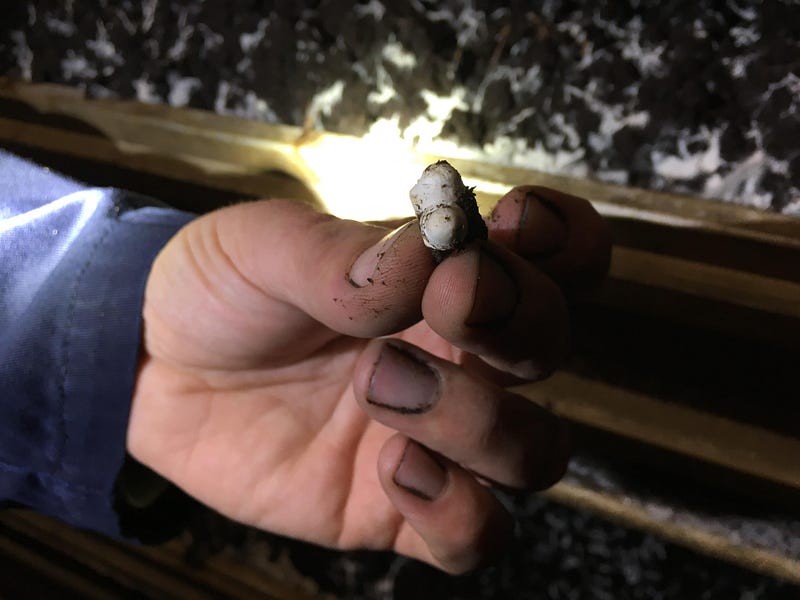
How are mushrooms grown?
It’s actually quite a long process. It starts with composting. Our process takes close to two weeks to get the compost prepared. After that, we bring it into the tunnel building, which is where the compost gets pasteurized and heated up to cook out all the bad stuff and keep all the good stuff, for a week.
We then add the mushroom seed, the spawn, to the compost and then the compost will sit from thirteen to eighteen days in the tunnel to grow the mycelium, the actual fungus, into the straw.
Then we’ll take it out and bring it up to the front building to put it in the room to grow mushrooms. That takes another fifteen to sixteen days until we have mushrooms, so it’s a long process. When you make changes, you won’t see them for a number of weeks so you really have to stay ahead of the curve.
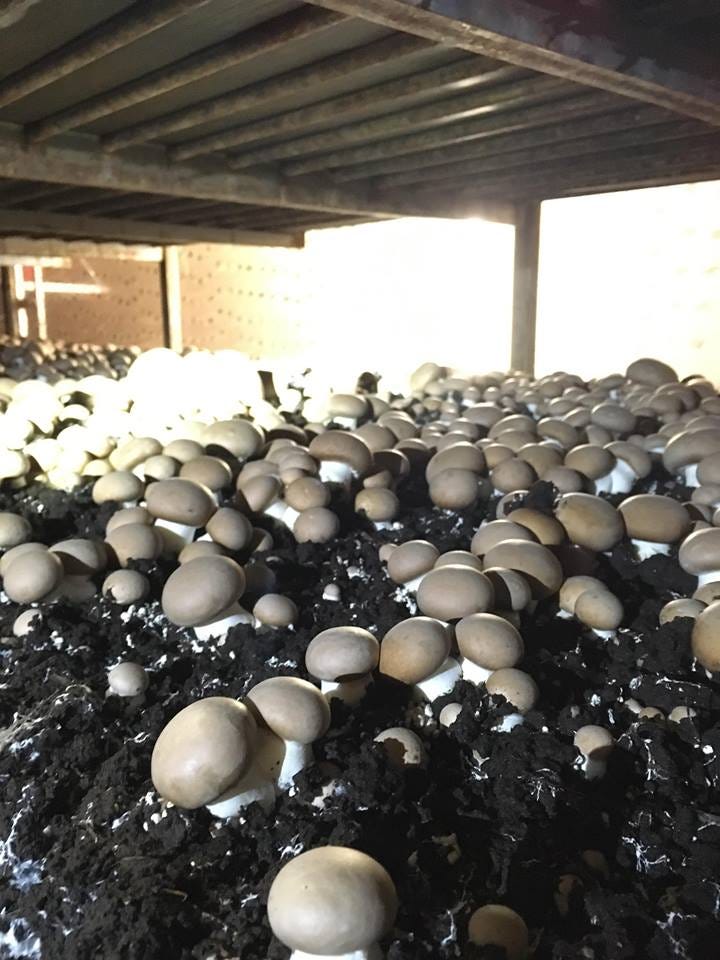
What was the training like to become a grower?
To grow one day by myself, it took ten months of training. After my first year, I did a course at Ridgetown College. Shortly after that, I went over to Holland to take a course and tour mushroom farms. The majority of training is just through experience and dealing with the growing rooms. It’s a lot of fun.
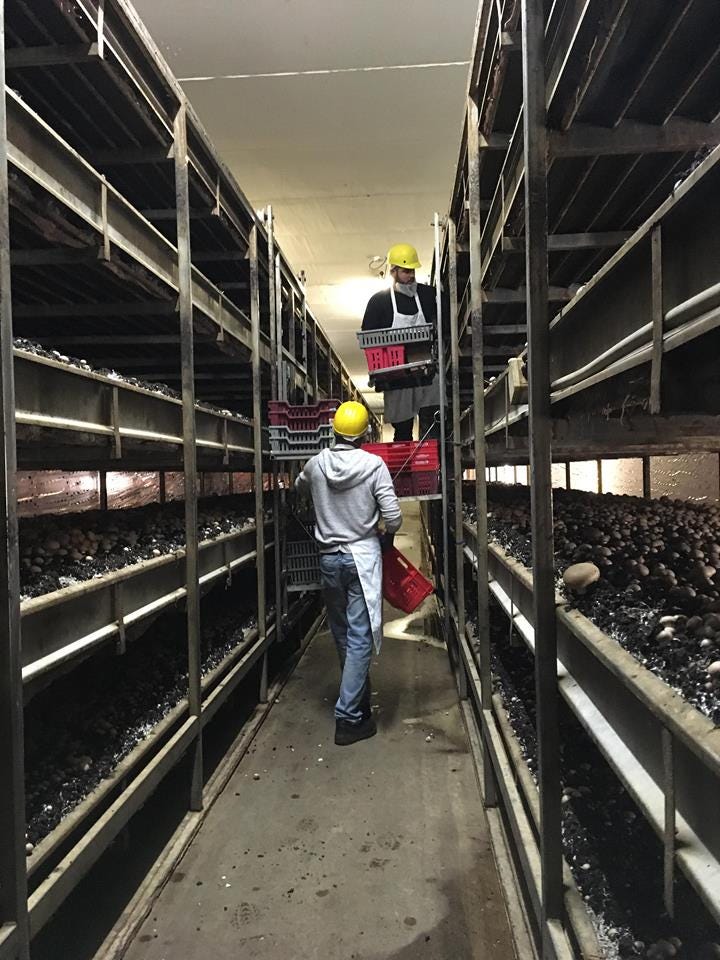
How are you continuing to learn?
We have weekly growers’ meetings between the Leamington and Kingsville farms. One week, we go to Leamington to see their farm and what challenges they’re having and try to learn from them. The following week, we’ll do the same thing, going back and forth. You are constantly learning on the mushroom and management side of things. We are always going to different summits and seminars to try to learn to be better leaders.
What is the best part of your job?
The most rewarding part is the relationship I have with the people who work here. I’ve worked here for a long time and worked with people for a number of years. You build some great working relationships. We have a really strong team here.

How is the industry changing?
With us being here, as well as the other Highline Mushrooms farm in Leamington; Windsor-Essex is a growing spot for mushrooms. We are two of the biggest farms in Canada and there is so much opportunity for jobs between the two farms. We are expanding right now, hoping to increase production by about 20% this year. We are always looking.
What is your key to success?
I always come in to work hard and stay positive. I try to do my best. I’ve been lucky to have some doors open for me at the right times so it’s been good fate as well. Stay positive, work hard, and don’t be afraid to get dirty.
